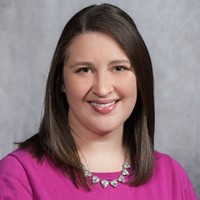By Laura Checovich
October 28, 2019
When high school students fail a class, many schools offer courses to help the students learn the material, recover the credits, and stay on track to graduate. These credit-recovery courses may require students to retake an entire course, complete online units or packets, or in some cases, show that they have mastered individual competencies needed to earn course credit.
Nearly 90 percent of schools in the United States offer credit-recovery programs of some type, and 15 percent of students have taken a credit-recovery course. Research shows, however, that the type of programming offered matters a great deal to students’ success in these courses. For example, credit-recovery programs without supports, such as independent study courses, show less promise than evidence-based programs that use personalized, competency-based strategies.
To promote best practices in credit recovery, the Minnesota Department of Education (MDE) partnered with the Regional Educational Laboratory (REL) Midwest to conduct an environmental scan of credit-recovery programs and practices across the state. MDE plans to use the information to guide credit-recovery policy and improve equitable access to high-quality education opportunities.
From November 2018 to July 2019, REL Midwest provided five coaching sessions to MDE staff on developing a research plan for the scan, defining the scope of work, conducting surveys and interviews, and analyzing and making sense of the results. Throughout the process, REL Midwest researchers worked alongside MDE staff, including Sally Reynolds, an alternative learning program specialist, and Jeff Plaman, an online and digital learning specialist. Reynolds and Plaman provide key support to the state’s alternative learning centers and thus were well-positioned to conduct the scan and apply the findings.
|
REL Midwest researcher Dominique Bradley, Ph.D., led the coaching sessions. Dr. Bradley’s goals were to support the MDE team in better understanding the current state of credit recovery in Minnesota and in identifying action steps for improving practices. |
Minnesota Department of Education
staff analyze the results of the credit-recovery program environmental scan
at a July 2019 REL Midwest coaching session.
|
The scan found that Minnesota’s alternative learning programs and charter schools were more likely to offer credit recovery and served a more diverse population of students than the state’s traditional public schools. Based in part on these findings, MDE staff and stakeholders decided to form a networked improvement community (NIC) of Minnesota alternative learning centers. This NIC will support staff at the centers as they collaborate and conduct fast turnaround research activities to develop, implement, test, and refine competency-based credit recovery practices in a continuous cycle of improvement. The first meeting of the new Minnesota Alternative Learning Center NIC was held on September 10, 2019.
MDE also plans to use the scan’s findings to inform policymakers and practitioners broadly about credit-recovery practices in the state. For example, MDE is using the findings to improve supports to help directors of alternative learning centers address barriers that students face in recovering course credits.
Related resources
To explore the main findings from the Minnesota environmental scan of credit-recovery programs, view our infographic. For more information on conducting an environmental scan, see the materials used in REL Midwest’s coaching sessions.


